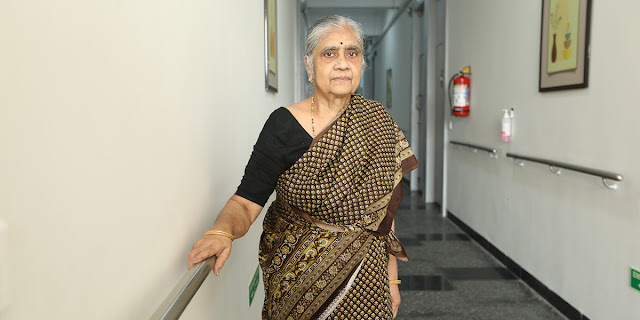How can seniors avoid future falls?
Many people are afraid of falling as they get older. It is true that falls can be quite hazardous. This is the leading cause of injury among the elderly, which is why fall prevention in the elderly is so important. Falling can occur at any time and in a variety of situations, but it most commonly occurs while walking or climbing stairs. Learning more about fall prevention in the elderly becomes increasingly vital as we grow older. Seniors are the most likely to get a fall-related injury, with nearly half of those injuries necessitating hospitalization. That is not what we desire. We all know that falls can happen to anyone for a variety of reasons.
Fall risk factors:Because of age-related losses in sensory function, muscle strength, and flexibility, ageing is a major risk factor for falls. Poor vision, using too many medications, and chronic conditions like arthritis are all problems. As well as mobility, body mechanics, and equilibrium issues. Even if they are having difficulty, some seniors with a history of falls may be unwilling to seek help. This is an issue because people who have previously fallen are more likely to fall again; this is due to the fear of falling, which can cause them to limit their activities or rely on others for help. Other risk factors include medication side effects such as dizziness and sleepiness, heart disease and high blood pressure.
Tips to prevent elderly falls:
Many elders are at danger of falling, but there are easy precautions that may be performed to lessen the risk. The following are ten fall prevention guidelines for the elderly that every senior should be aware of.
- Exercise is one of the most effective ways to avoid falling. Whether it's simple things like cooking or going for a stroll, or more rigorous hobbies like jogging or dancing, there's something for everyone.
- A well-balanced diet aids in weight management and ensures that the body receives adequate nutrients.
- Drinking enough water, like eating healthily, will assist seniors' bones and muscles stay strong and relaxed.
- Taking calcium and magnesium
- It is critical for the elderly to take their medications as prescribed by their doctors, as well as to inform them of any extra supplements they may be taking. These frequently interact poorly with prescription medication.
- Fall injuries can occur when getting up and down from a seat. Seniors should carefully rise up, as haste can cause them to lose their equilibrium.
- Seniors are especially vulnerable to falls because they are more likely to suffer from conditions that cause blindness or poor vision, such as glaucoma or degeneration. Seniors should have their eyes tested on a regular basis and, if necessary, wear prescription glasses.
- Proper lighting
- Avoid clutters
- Installing grab bars
- Using handrails
- Use non-slip mats
- Floor and Walking spaces
- Handrails and Grab Bars
- Lighting
- Safe Electronic sockets
- Clinical beds with senior-friendly automated adjustments.
- A nurse calling the bell system for easy access.
- Rooms are fully equipped and large, with amenities such as Wi-Fi, television, and climate control.
- Slip-resistant surfaces with enough lighting and handrails for further support.




Comments
Post a Comment